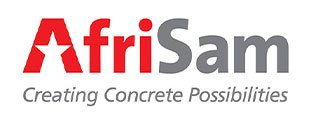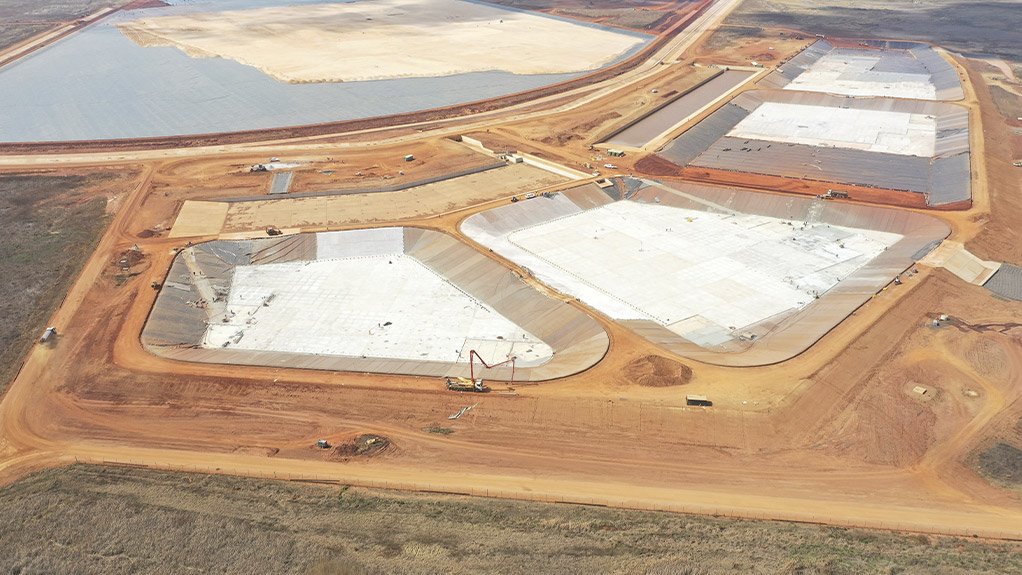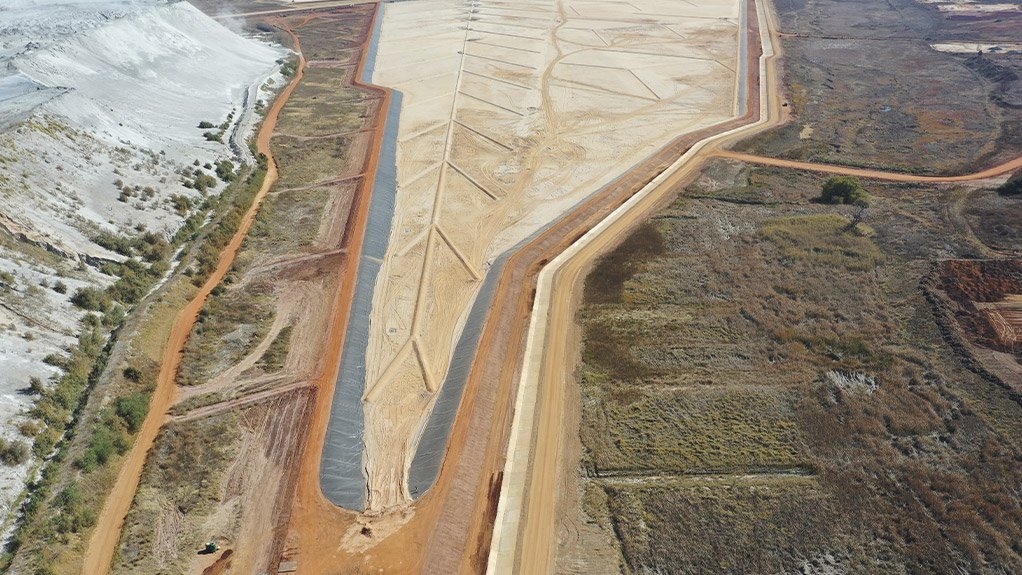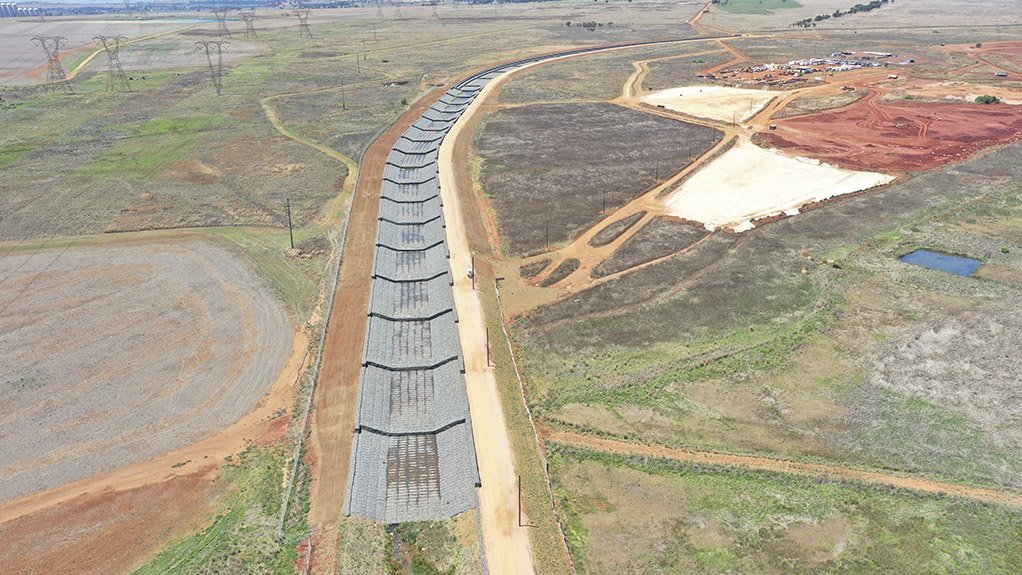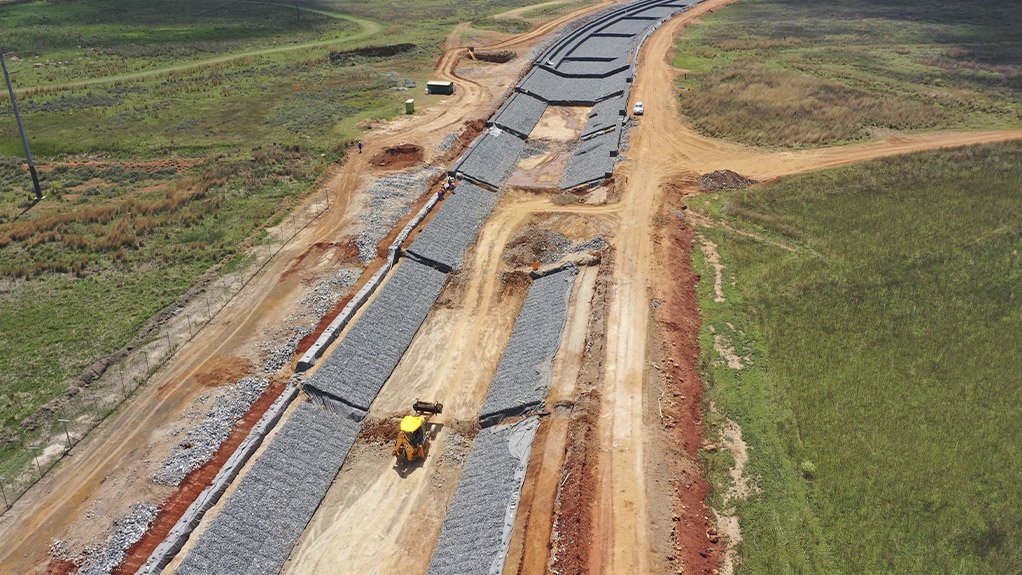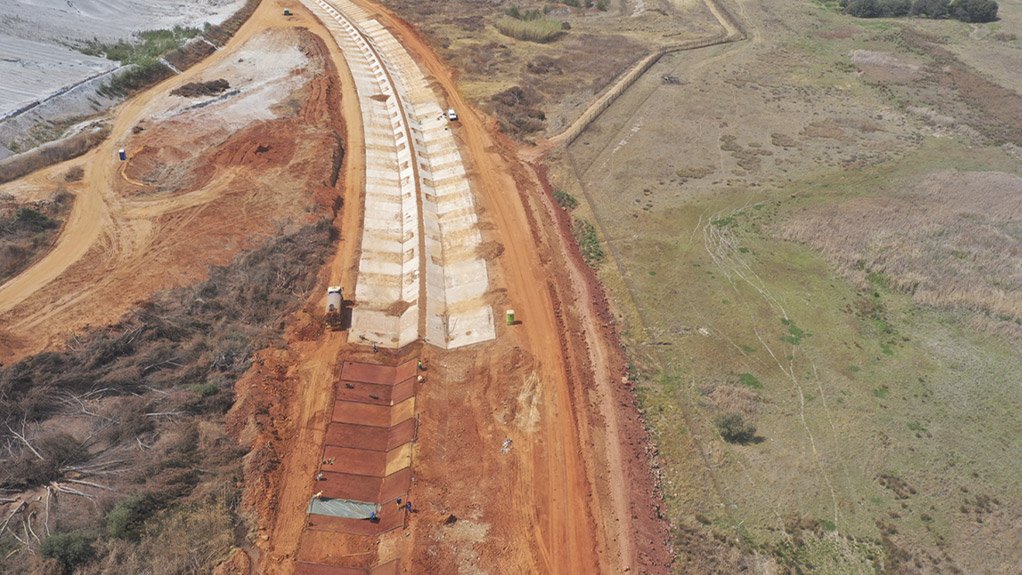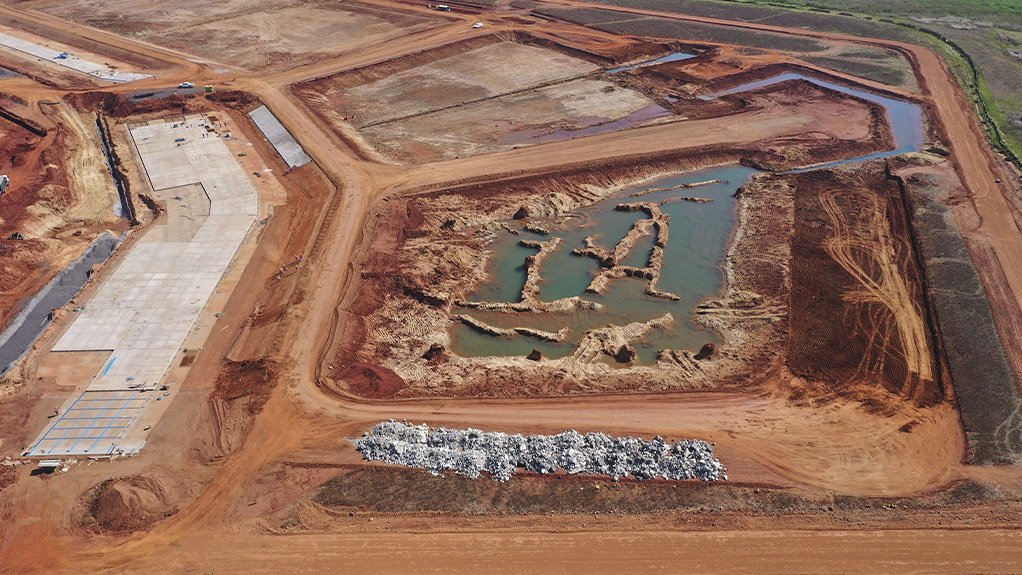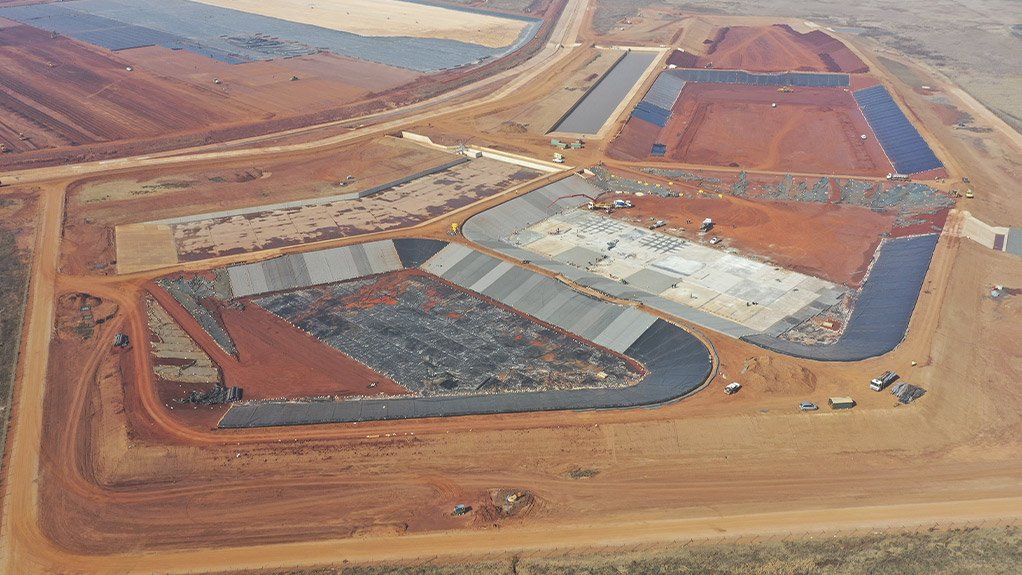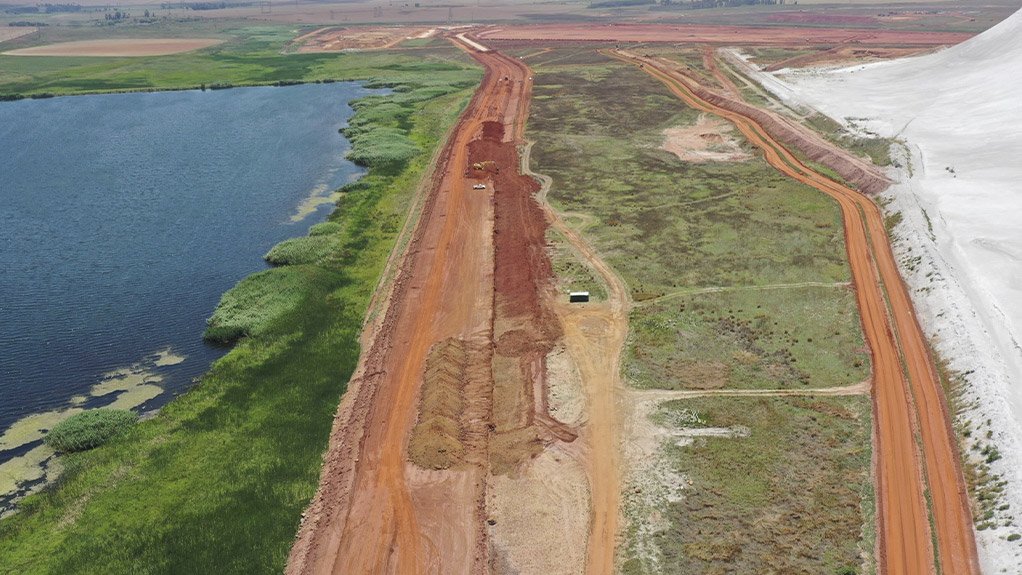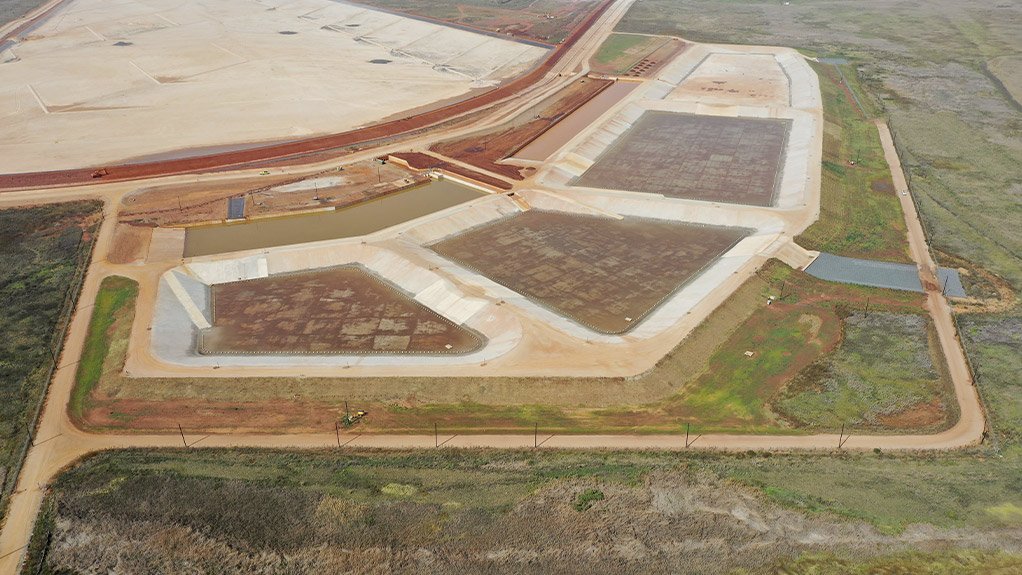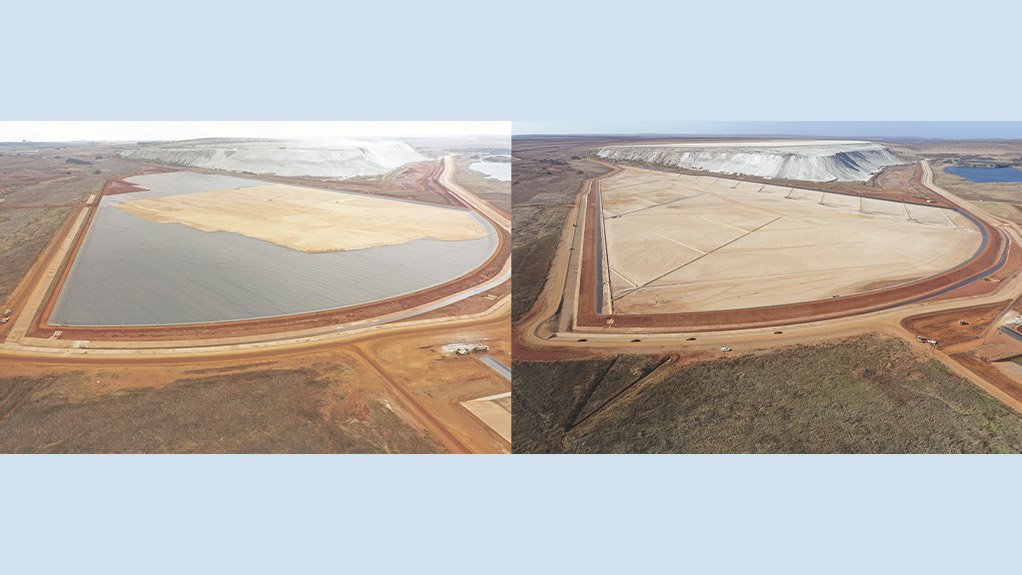Concor won two prestigious Construction World Best Projects 2024 Awards for its impressive work, undertaken in joint venture with Lubocon Construction, on the Ash Disposal Facility (ADF) expansion at Eskom’s Kendal Power Station near Ogies, Mpumalanga. Placed as the winner in the AfriSam Innovation Award for Sustainable Construction Category, the projects also secured a Highly Commended in the Civil Engineering Contractors Category. These awards highlight Concor's commitment to environmentally responsible engineering and infrastructure innovation, especially within the power generation sector.
The project is notable for its sheer size and complexity, covering approximately 2.5km by 3km. The construction scope included a new 65 hectare ash disposal site, two lined dams for clean and polluted water, a 16km V-drain water channel system, silt traps, access roads and a significant 3km stream diversion. This expanded ADF enables Kendal Power Station to manage ash disposal sustainably, extending its operational life by almost another decade. The project’s comprehensive design ensures compliance with stringent environmental regulations, a critical aspect of maintaining energy production while safeguarding surrounding ecosystems.
The 3km stream diversion, a prominent element of the project, channels clean water around the ADF to prevent contamination. Designed to withstand extreme conditions, the diversion is built for 1-in-100-year flood levels and is reinforced with erosion control structures including gabion linings and Reno mattresses. The gabions alone required more than 4,100 hand-filled baskets, using over 42,000 tons of rock and employing 120 workers for 19 months.
This diversion not only protects water resources but also aids in the restoration of a natural ecosystem as the gabions and river mattresses help stabilise the banks and encourage revegetation with wetland materials. A biodegradable blanket further prevents erosion on the banks, creating a supportive habitat for aquatic life and vegetation.
Environmental compliance was central to the ADF’s design, particularly the prevention of groundwater contamination. The facility was lined with a robust composite system, comprising two 150mm thick layers of low permeability clay sourced from on-site excavation. This clay layer, combined with an impermeable HDPE liner and a subsoil drainage system, forms a durable barrier that prevents seepage into the groundwater. Above this liner, a leachate collection system of HDPE pipes in a herringbone layout helps capture and manage potential contaminants, further safeguarding the environment.
The ADF project also included the construction of two strategically located dams—one for polluted water and the other for clean water. Dam 1, designated for polluted water, has a capacity of 130,000m³ while Dam 2, for clean water, can hold up to 257,000m³. These dams were compartmentalised for greater control and efficiency and included a 150mm concrete ballast layer for structural integrity. Concor applied a patented PVC formwork system during the dam construction allowing faster and more efficient casting of concrete panels, significantly reducing time and labour.
Facing a strict project timeline, Concor and Lubocon maintained continuous operations, leveraging around-the-clock shifts during dry months to make the most of favourable weather. This rigorous approach allowed the project to meet environmental licensing deadlines with construction commencing in June 2020 and completing in June 2024.
Despite challenging timelines and complex requirements, Concor successfully maintained its Zero Lost Time Injury (LTI) rate across a total of 2.2 million hours worked. The company’s “Zero Harm” strategy and Visible Felt Leadership principle, involving active oversight by experienced safety officers, were instrumental in fostering a strong safety culture on-site.
The Kendal ADF project also set a high standard for community engagement and corporate social investment (CSI). Concor and Lubocon worked closely with Eskom to implement social initiatives in the surrounding communities. This included the addition of modular classrooms and a kitchen at a local primary school.
Furthermore, the project achieved 85% local content, sourcing materials, transport, security services, and other supplies from nearby towns, thereby boosting local economies. Over its lifecycle, the project employed around 450 local workers, including subcontractors, and partnered with community structures to ensure equitable access to employment.
Skills development was also a priority, with training provided in fields such as civil engineering, safety, administration, and mobile plant operation. By the project’s end, over 850 locals had received valuable skills training, equipping them for future employment opportunities.
Concor’s approach to environmental management extended to on-site practices that minimised ecological impact. For instance, a subsoil drainage system captures clean groundwater and diverts it into the clean water dam, reducing reliance on municipal water sources and promoting water reuse. Additionally, the project’s stream diversion was lined with local wetland material to encourage natural vegetation growth. Regular maintenance will prevent alien plant invasion and protect the waterway from erosion.
This award-winning project is an exemplary model of sustainable construction, reinforcing Concor’s “Build to Last” philosophy, which emphasises longevity and value. The company’s commitment to quality was underscored by using innovative techniques, such as K Form shutters, which allowed the dam basins’ concrete work to be completed two months ahead of schedule. Every project component, from sluice gates to HDPE geomembranes, underwent stringent quality checks, ensuring a robust final product that would serve the community and environment effectively.
Concor’s achievements in the Kendal ADF project underscore the company's capability to deliver on large-scale complex infrastructure projects with a strong emphasis on environmental stewardship, community engagement, and technical excellence. This project not only supports Eskom’s operational goals but also contributes significantly to South Africa's broader energy security by ensuring a stable ash disposal solution aligned with environmental standards.

